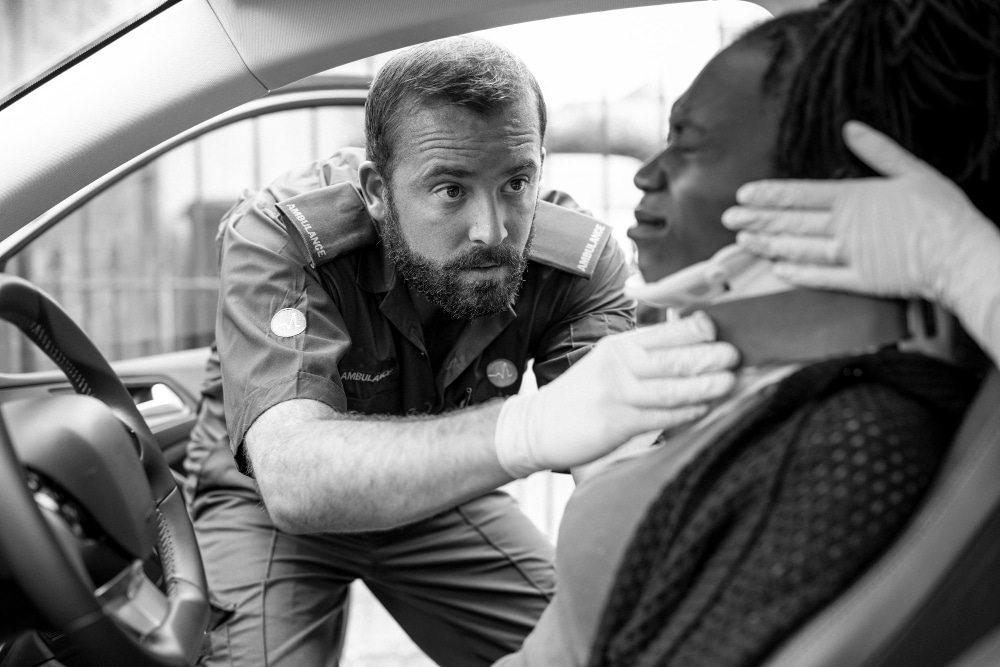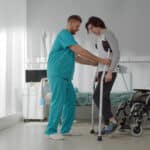
Discover the most frequent injuries that can occur during a car accident and how to recognize their signs early.

Understanding Whiplash: Symptoms and Recovery
Whiplash is a common injury that can occur during a car accident. It is caused by a sudden jolt or impact that causes the head to jerk forward and backward rapidly. The symptoms of whiplash may include neck pain, stiffness, headaches, and dizziness.
Recovery from whiplash can vary depending on the severity of the injury. In most cases, rest, ice, and over-the-counter pain medication can help alleviate the symptoms. Physical therapy exercises may also be recommended to improve neck strength and flexibility.
If you experience any symptoms of whiplash after a car accident, it is important to seek medical attention to properly diagnose and treat the injury.
Concussions and Traumatic Brain Injuries: What You Need to Know
Concussions and traumatic brain injuries (TBIs) are serious injuries that can occur during a car accident. They are caused by a blow to the head or a sudden acceleration/deceleration of the brain within the skull.
The symptoms of a concussion or TBI can vary and may include headache, dizziness, confusion, nausea, and memory problems. In some cases, the symptoms may not appear immediately after the accident but can develop over time.
If you suspect you have suffered a concussion or TBI, it is important to seek medical attention. Rest and avoiding physical and mental exertion are often recommended during the recovery process.
The Impact of Broken Bones in Car Accidents
Broken bones are a common injury that can occur during a car accident. The impact of a collision can cause bones to fracture or break. The most commonly broken bones in car accidents are the ribs, arms, legs, and collarbone.
The symptoms of a broken bone may include severe pain, swelling, bruising, and difficulty moving the affected area. Treatment for a broken bone may involve immobilization with a cast or splint, and in some cases, surgery may be necessary.
If you suspect you have a broken bone, it is important to seek medical attention as soon as possible to prevent further damage and promote proper healing.
Soft Tissue Injuries: Identifying and Treating Sprains and Strains
Soft tissue injuries, such as sprains and strains, are common in car accidents. These injuries occur when the ligaments, tendons, or muscles are stretched or torn. They can cause pain, swelling, and limited range of motion.
Treatment for soft tissue injuries may involve rest, ice, compression, and elevation (RICE). Physical therapy exercises and pain medication may also be recommended to aid in the recovery process.
If you experience symptoms of a soft tissue injury, it is important to seek medical attention for a proper diagnosis and treatment plan.
Psychological Effects Post-Accident: Recognizing PTSD and Anxiety
In addition to physical injuries, car accidents can also have psychological effects on individuals. Post-traumatic stress disorder (PTSD) and anxiety are common psychological conditions that can develop after a car accident.
Symptoms of PTSD and anxiety may include flashbacks, nightmares, irritability, trouble sleeping, and difficulty concentrating. These conditions can significantly impact a person’s daily life and well-being.
If you are experiencing psychological symptoms after a car accident, it is important to seek professional help. Therapy, counseling, and medication may be recommended to manage and treat these conditions.




